The SBC Can Provide Financial Transparency to Churches and Protect Missionaries at the Same Time
The International Mission Board is the glue of the Southern Baptist Convention. No matter our stateside disagreements and controversies, Southern Baptists unite around our goal of taking the Gospel to unreached peoples and places. In an era of widespread frustration across the SBC, the IMB remains our most beloved and trusted Southern Baptist institution.
Our love for the IMB makes Dr. Paul Chitwood’s recent stand against 990-level financial transparency even more disheartening. Last week, Chitwood told trustees that 990-level disclosure is unreasonable – even dangerous – for the IMB. To make his point, Chitwood used alarmist rhetoric.
Unfortunately, most of his comments were simply not true.
For context, I moved to amend the SBC Business and Financial Plan at last year’s annual meeting. My amendment, if adopted, would require entities to give Southern Baptists financial information of the same detail, scope, and quality of information in the public portion of IRS Form 990. For most nonprofits, Form 990 is the IRS-required disclosure to give the public and donors the information they need to evaluate the organization’s health and trustworthiness. But churches and church-related organizations, such as our SBC entities, are exempt from filing with the IRS.
To be clear, my amendment very intentionally does not request any of this information be provided to the government. Rather, I’ve simply asked that SBC churches receive the same level of financial information normally disclosed on Form 990 from the entities. This is an entirely reasonable request. The entities belong to and work for the churches, not vice versa.
However, Dr. Chitwood claimed, “That kind of public reporting could literally put the lives of our missionary families and their national partners at risk and would potentially compromise the confidentiality of church members and other donors who generously support the IMB’s work.”
That is both hurtful and untrue. My family served with the IMB among unreached and unengaged people in a Muslim nation for seven years, so I am very sensitive about the security issues our missionaries face. If this request would put lives at risk, I would be among the first to speak out. But no one can tell me what information—specifically—is the problem; rather, Chitwood appears to claim that all of the 990 information is alleged to be “dangerous” if disclosed.
Under my motion, the names of individual field missionaries would not be disclosed. One area where names are listed on the 990 includes the highly paid officers, trustees, and key employees. A “key employee” is defined as one who makes more than $150,000, oversees ten percent of the budget, assets, or activities, and is one of the top 20 compensated employees of the organization. Field missionaries would not meet any of these criteria for disclosing their names on the 990, and officers’ and trustees’ names are already publicly available. The compensation disclosures fall on upper management, not field missionaries.
Perhaps there is some misunderstanding about another list in Schedule F. Schedule F requires high-level disclosure of money spent outside the United States. The public disclosure is just at the level of continents and regions, as you can see on page 29 of the 990 filed by a sister missionary group. With a quick perusal of the IMB website one can easily ascertain which continents and regions of the world where the IMB has a presence, so this would not disclose anything not already made public by the IMB already. The names of specific companies are not disclosed to the public in Schedule F. IMB platform companies would not need to be disclosed, thus not compromising any of our creative access identities.
Chitwood’s assertion that this motion “would potentially compromise the confidentiality of church members and other donors who generously support the IMB’s work” is also incorrect. The motion I made explicitly excludes the Schedule B list of donors. And, again, the motion says no information will be given to the government.
The only possible security-compromising disclosure I can imagine is if IMB listed a “confidential” company as one of its top five independent contractors. It’s not certain those companies meet the definition for listing. However, if no accounting workaround can be found, this would be a reasonable “tweak” when the Executive Committee reports back to messengers. I would accept such a change as a good-faith effort to pursue what should be a unified goal for our SBC entities: Providing increased financial transparency to the churches that fund their work (which is really our work).
Transparency advocates have repeatedly said they support keeping missionaries safe. No one wants to put any missionary in danger.
But this specific concern is not a reason to oppose the rest of the 990-level information. A reasonable and measured response from the IMB would be to support 990-level transparency but note which, if any, of the specific schedules could potentially compromise their work and ask for those to be excluded. What Dr. Chitwood should have said is, “We support this except for Schedule F and listing any confidential companies.” That would have been real leadership.
Instead, the IMB is using its good reputation to become the only SBC entity that is (presently) publicly opposing the 990 amendment. However, I have been made aware that several entity heads oppose this grassroots move for financial transparency behind the scenes. One could be forgiven for thinking their strategy is to let our most beloved and trusted entity dissuade messengers from acting in their best interest with the alarmist rhetoric that standard financial disclosure poses an existential threat to the heart of our mission together.
Although such fear-mongering may be effective in the short term, repeating easily disproved claims will only hurt the IMB in the long run. Inaccurate statements coupled with scary-sounding rhetoric about “endangering our missionaries” do not serve our Great Commission cooperation well and will further erode the trust that is necessary to keep us working together.
Not only was Chitwood wrong and unhelpful in his rhetoric, but he is also wrong in his claims that the IMB provides “full transparency.” In his address to trustees, Chitwood said, “At the IMB, we undertake financial stewardship and reporting with a goal toward full transparency and the highest standards of accountability.” Later, he remarked that the IMB meets and exceeds expectations of financial transparency.
To be clear, from my experience serving with the IMB, I trust that leadership wisely stewards the Cooperative Program and Lottie Moon Christmas Offering dollars. But it cannot be true that the IMB has a goal of “full transparency” when, in the next breath, Chitwood opposes basic transparency in the form of 990-level disclosure to the cooperating churches of the SBC who generously fund their work.
It is also not true that the IMB is adhering to the highest accountability standards or exceeding financial transparency expectations. In fact, there are very real questions about whether they are even meeting the required standards as set forth in the SBC governing documents. They still refuse to comply with the current Business and Financial Plan. Article 14 says: “Members of cooperating Southern Baptist churches shall have access to information from the records of Southern Baptist Convention entities regarding income, expenditures, debts, reserves, operating balances, and salary structures.”
This past spring, when members requested the salary structures from our entities, several entities, including SEBTS, ERLC, and NOBTS, promptly replied with those documents. But the IMB replied with a paragraph about how their trustees set the salaries. Rather than provide the information from the records as required, they reinterpreted Article 14 to give salary “theory” instead of salary data. How can refusal to comply with current rules exceed expectations of financial transparency?
This financial transparency amendment aims to rebuild trust within our Convention so that we can move forward with our mission of reaching the whole world with the Good News of Jesus Christ. Transparency advocates want to see more missionaries, not fewer. We believe developing our principles of good governance to meet 990 levels of transparency is one key way to ensure Southern Baptists continue to flood the fields that are white for the harvest with workers ready to reap.
The sad reality, however, is that we are already down many missionaries. The recent Great Commission Resurgence Evaluation Task Force report says that while the amount of money received by the IMB has increased since 2011, the number of field missionaries is down by over 2,000. Granted, many factors have contributed to that reality, including an inflationary economy where the number of dollars is up, but the value of those dollars is down. But we have not had an inflationary economy during the entire period of 2011-2024, and our missionary numbers have been down for nearly a decade. Baptists have not given to the IMB or Cooperative Program at the same rate compared to prior decades.
One major factor contributing to the reduction of field missionaries was the voluntary early retirement and resignation programs in 2015-16 that saw the IMB lose nearly one thousand field missionaries. But rather than mitigating the need for more financial transparency, the fact that the IMB was in such financial straits that we had to encourage missionaries to leave the field demonstrates the need for more financial transparency and accountability, not less.
I love the International Mission Board. I vividly remember sitting in the back of a hotel room in Prague, watching a talent show during an affinity group meeting. The missionary kids were thriving and talented. I had listened to stories earlier in the day of the Lord’s work in some demanding places of the world, and the courage and faithfulness of my colleagues inspired me. After the talent show, we sang hymns together. I remember thinking these are some of the best people I know. I was numbered among them but did not feel worthy of them. I want their work to go on for decades. I long for generations after us to continue the work to see all peoples, nations, and languages come to Christ.
But if we want to fund this work, we need to tell the truth and walk in the light. Otherwise, trust, giving, and sending risk declining even further—a result that, I trust, no Southern Baptist desires.
-

Rhett Burns is the pastor of First Baptist Church of Travelers Rest. A lifelong Southern Baptist, he previously served with the IMB in Central Asia. He resides in Travelers Rest, SC with his wife and four children.

